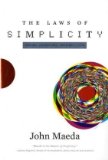Web guy Phil Howie talked at Barcamp Auckland 4 recently about designing forms on the web. He singled out Luke Wroblewski as a good source of wisdom on this topic, especially Luke’s book Web Form Design. I can second that recommendation — I’ve posted about Luke’s form design ideas before. Continue reading “Designing and Building Great Forms at BCA4” →
The Inmates Are Running the Asylum — Alan Cooper

This is a passionate polemic on the dark side of rampant software technology. But it also shows a way out, and that is (cue celestial choirs) Interaction Design. Continue reading “The Inmates Are Running the Asylum — Alan Cooper” →
A Project Guide to UX Design — Russ Unger & Carolyn Chandler

This is an overview of the entire world of user experience (UX) design from the point of view of a dedicated UX practitioner. It covers the UX side of project management, client interaction, design, development, and testing. Despite the broad coverage, its focus on the practitioner means it goes into a bit more depth than many such books.
The book includes good discussions of personas, user-centered design, user testing, wireframes, prototyping and more. Continue reading “A Project Guide to UX Design — Russ Unger & Carolyn Chandler” →
The Laws of Simplicity — John Maeda

This simple book is worth reading for its mindset rather than for any concrete ideas. Maeda gives ten “laws” of simplicity, but they’re really pretty arbitrary. The tenth law is just a slogan (although a good one), and there are three extra laws at the end. Clearly he was intent on having ten laws in his list.
Here’s my interpretation of the laws:
Thoughtful reduction yields simplicity.
Organisation makes complex systems appear simple.
Savings in time feel like simplicity.
Knowledge makes everything simpler.
Simplicity and complexity need each other.
Simplicity needs a sympathetic context.
More emotions are better than less.
In simplicity we trust.
But some things cannot be made simple.
The Cult of Next Manifesto
Bored with what you’re doing now? May I present the next thing:
The Cult of Next Manifesto
- There are three states of being. Not knowing, action and next.
- Accept that everything is a draft. It helps to get to the next thing.
- Done is not enough.
- Pretending you know what you’re doing is almost the same as knowing what you are doing, so just pretend you know what you’re doing and go to the next thing.
- Banish procrastination. If you wait more than a week to get an idea done, go to the next thing.
- The point of being done is not to finish but to get to the next thing.
- Once you’re done you can go to the next thing.
- Laugh at perfection. It’s boring and keeps you from the next thing.
- People without dirty hands are wrong. Getting to the next thing makes you right.
- Failure means you can go to the next thing. So do mistakes.
- Destruction means you can go to the next thing.
- If you have an idea and publish it on the internet, you can go to the next thing.
- Next!
Search Meter WordPress plugin version 2.7
Version 2.7 of Search Meter, my free WordPress search statistics plugin, is now available. I have added four often-requested features:
- Duplicated recent searches are shown only once in the Recent Searches plugin
- You can now specify a list of filter words. Any searches containing these words will not show up in the recent and popular search widgets, even if the searches were successful
- Search links in the widgets will work correctly whether or not fancy permalinks are enabled
- The blog administrator can decide who is allowed to see full statistics: all logged-in users, authors and administrators, or administrators only
This version of Search Meter requires WordPress 2.3 or later. If you are still using an older version you should probably upgrade anyway, otherwise you can always use an older version of Search Meter.
Let me know how the new features work for you. If you have any comments or questions, just add a comment to this page.
Subversion does not play tag
Subversion is a fine version control system, but unlike most others it does not allow tagging of files and directories. Its so-called “tag” functionality is really just a kludge, but if you understand its limitations it can still be useful. Continue reading “Subversion does not play tag” →
